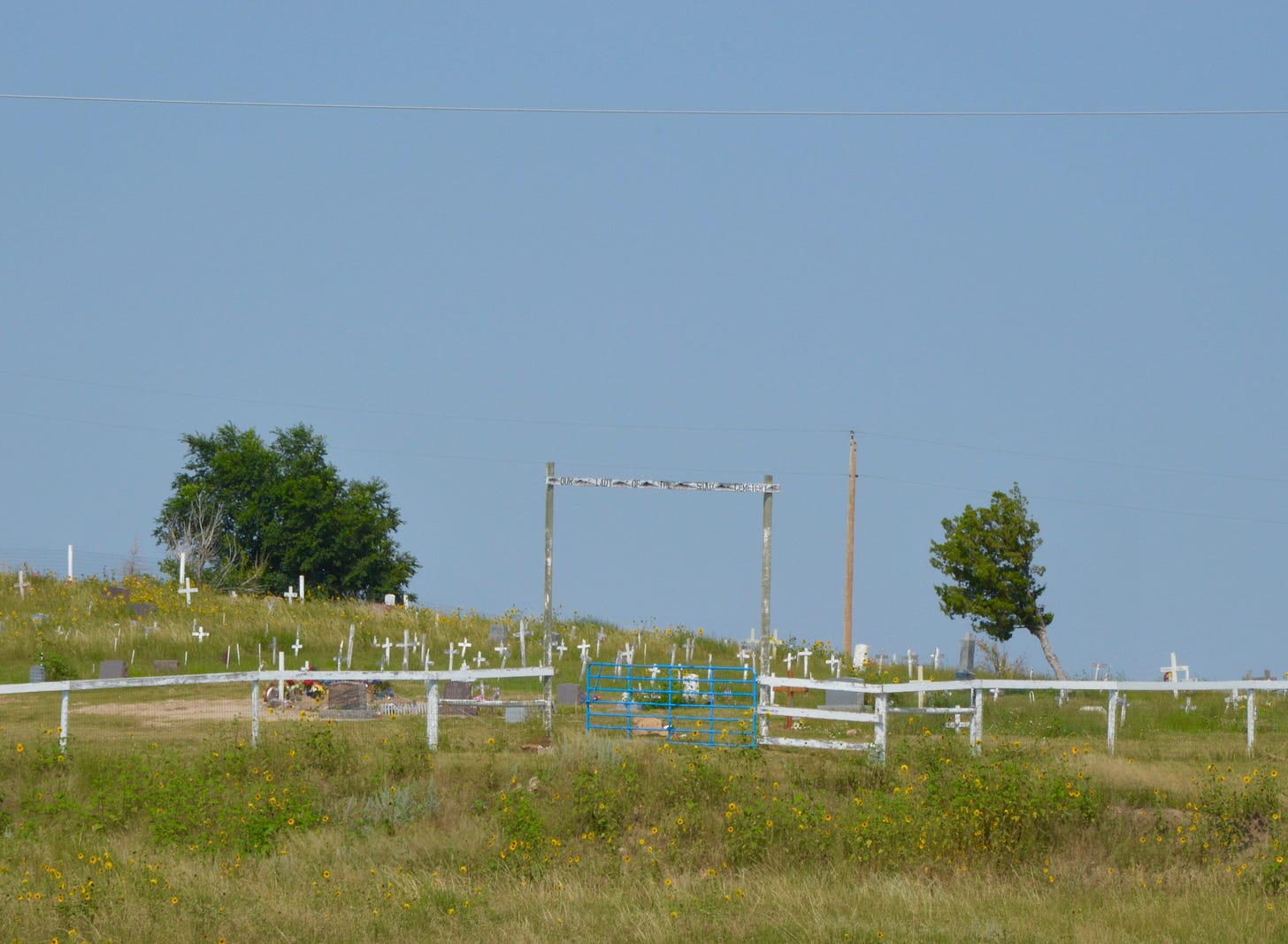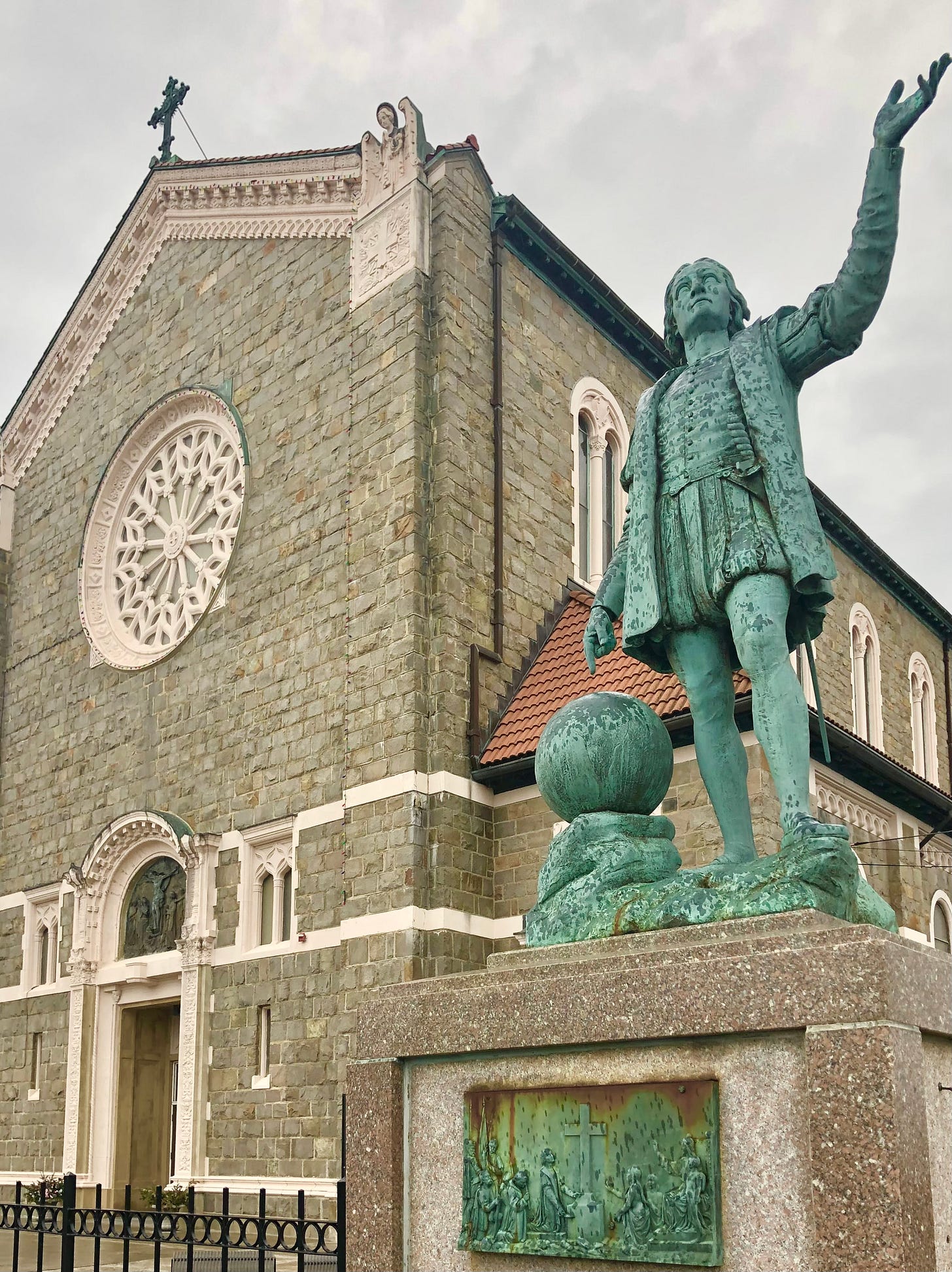Hi Zan, Hi Pa
Volume #38
April 10th, 2025
HI, ZAN: The word ‘history’ is in the news a lot these days. Making history. Going down in history. Changing the course of history. History will judge. Those who don’t know history are destined to repeat it. And so on. What are your thoughts on the subject?
HI, PA: The whole concept of history is fascinating to me—not only are we currently living out a product of our history but we’re also simultaneously creating the history of the future. What is history if not a collection of present moments over time that are recorded and misrecorded, remembered and misremembered? So much of the history that we remember, study, and discover informs our society and therefore our decisions.
There’s a lot to unpack within the subject of history, so let’s start with learning about it. Do you remember taking history classes in school?
PA: Not particularly. I had a history class at Exeter, on the Supreme Court. I liked it, but its focus was very narrow. I’m sure I had other courses in the subject, but I don’t recall them.
Do you think we pay more attention to history as we get older? I know that has been true for me, but has it been true for you? Do you think it’s generally true?
ZAN: Honestly no—mostly because I remember being so enthralled by history as a child, specifically ancient Egypt, Rome, and Greece. Then in high school I developed a fascination with the history of the US government’s horrendous treatment of Native Americans and how that contributed to high levels of poverty, obesity, and addiction in Indigenous populations in modern times.
Site of the Wounded Knee Massacre in South Dakota, where nearly 300 Lakota people were killed by the US Army in December of 1890. Photo by Amanda S. Merullo.
ZAN (continues): Now, as a 20-something, I’m admittedly more self-obsessed—I think of history often, but feel more of my mind consumed by thoughts of my own future than thoughts of the past.
What has changed for me as I’ve gotten older though is the realization that years I lived are now tucked away in history. I remember the shadow 9/11 cast over my life (in terms of how it was spoken about or all the changes in airport security afterwards) when I was young, but now that’s just another event kids learn about in school. Soon even the pandemic will cease to be a conversation topic and will live on in history books…
Does it ever hit you that you’ve lived through a lot of historic events?
PA: All the time. I used to think about the big events my parents lived through: the Great Depression, World War II, the Korean War, the Cold War, countless inventions that changed our daily lives. And now I can do the same with my life.
I remember the first space flights (Mrs. Gravelese brought a small black-and-white TV into our third-grade class so we could watch), the assassinations of both Kennedys and Martin Luther King, the attempt on Reagan’s life (I was in D.C.), the disappearance of the typewriter, the invention of the personal computer, the internet, the iPhone, the days when an HIV/AIDS diagnosis was a death sentence.
One time—not sure if you remember this—I sat in the car with you and Juliana and pointed out all the changes that had occurred in my lifetime, just in the interior of a passenger vehicle. Seat belts, side mirrors, AC, satellite radio, rear-window defrosters, hazard lights, power steering, electric windows. We’re surrounded by change.
ZAN: Interesting—I don’t remember that! You’ll have to do it again.
PA: Looking at history, do you think we’re making progress as a species, going backwards, or just treading water?
ZAN: I consider myself an optimist and it’s a core belief of mine that the universe is ultimately good, so I’d like to believe we’re making progress. Even if reading headlines about all the conflict, suffering, greed, and stupidity in the world makes it seem like we’re drowning rather than even treading water… Maybe our progress just seems incremental when set against the timespan we can comprehend? But if you were to zoom out and look at all of human history, it might seem like we’re evolving at a steady rate.
How do you think we can measure progress?
PA: Less violence. Less avoidable suffering—no starvation, for instance, which is always political at its root: the Earth produces plenty of food. The end of war would be a nice sign of progress, though I don’t see that happening. Humanity caring more for the natural world would encourage me.
In fact, though, I don’t really believe in progress, except on the individual level. I think a person can absolutely make progress over the course of a lifetime: become kinder, better, deeper. But I don’t see evidence that humanity as a whole has progressed. Technologically, sure, obviously. But morally? I don’t see it. I think history repeats itself, though in different guises.
ZAN: I agree—especially considering we’re seeing particularly painful parts of history repeat themselves in the US right now. Though wouldn’t lots of individuals making progress eventually lead to humanity as a whole making progress?
PA: Those people die and are ‘replaced’—sometimes by people who badly need to make progress. If I look at history, I see the ratio of good to evil staying about the same, though in different places at different times one side or the other predominates.
Do you think the saying “the victors write history,” is true?
Statue of Christopher Columbus in front of St. Anthony’s church in Revere, MA—site of Pa’s baptism. Photo by Amanda S. Merullo.
ZAN: I think that’s quite literally true. For example, I recently spent a few days trekking through Indigenous Zapotec communities in the mountains above Oaxaca in Mexico, and at one point during a workshop, learning about the traditional fermentation of agave spirits called pulque and tepache, I asked our guide how long these spirits had been made in the area. His response? “We don’t actually know—the Spaniards destroyed all our records when they conquered our people.” He had similar answers for my other questions about Zapotec history throughout the trek. Not only do victors write history, but they may also erase any versions of that history that contradict theirs.
PA: Which is such a loss for the rest of us.
ZAN: It’s interesting to think about the way history colors the present, especially when it comes to conflicts between groups. Last night I finished reading The Other by Ryszard Kapuściński, a thoughtful book about the relationship between Europeans and “Others,” meaning the people from developing countries who Europeans have generally “othered.”
One paragraph stuck out to me and is relevant to this conversation: “Though it is hard to prove that history teaches us about life, we must remember the unfortunate balance of our relations with Others, because just as a bad childhood leaves its marks on the whole of a person’s later life, so a bad historical memory has an effect on later relations between societies.”
What do you think?
PA: Makes me want to read the book. I think it’s partly true, but memories are short. I’m old enough to remember the time when people in my neighborhood would absolutely refuse to buy a car made in Japan—because they or some of their relatives had died fighting the Japanese. Sixty years later, who refuses to buy a Japanese (or German) car for that reason?
ZAN: Good point, though in some parts of the world (like Israel and Palestine) conflicts have been going on for generations.
PA: Some of the issue is who controls the writing of history. And I mean the actual writing. If, for one of fifty examples, Native Americans had had academics and libraries and thousands of people who devoted their lives to writing down and publishing what was happening, we might have seen Christopher Columbus in a very different light when I was a kid in school. Torturer instead of hero. Cortez, Ponce de Leon, Balboa, some Army commanders and presidents, the same. This doesn’t absolve European and American scholars of those eras, but certain voices, then and now, have been and are silenced. They don’t get to write their fair share of history, and so it’s filled with myths, half-truths, and outright falsehoods. Imagine what kids in Chinese schools are reading about Tibet these days.
ZAN: Exactly, and most of that is beyond the control of the people who were conquered. It’s interesting that many of those cultures have stronger oral history traditions than written ones, and probably because oral history is harder to completely quash.
If our memories are so short, what is even the importance of recording history?
PA: Now there’s an interesting question. I’ve never thought about that before, about the idea of living without history. Interesting as it is, has written history ever prevented a war? Maybe history offers examples of good behavior to good people, and examples of bad behavior to bad people. Some of us learn about Buddha, Christ, Gandhi, or Rosa Parks and are inspired to be kind, non-violent, or brave enough to resist evil. Others seem to learn about Nazism and say, ‘Wow, what a great idea!’
ZAN: Well, do you think they see Nazism and are actively inspired by it? Or do you think they continue to insist what they’re doing is different until their dying breath?
PA: The former. I believe there are evil people. Ignorance is an aspect of their evil, but I think there are those who literally have zero compassion, no understanding at all of the feelings of other human beings.
Do you think we would be comfortable not knowing about anything that happened before we were born? Or being born someplace where we didn’t have access to world history, only the oral history of our immediate surroundings?
Keep reading with a 7-day free trial
Subscribe to Hi Zan, Hi Pa to keep reading this post and get 7 days of free access to the full post archives.




